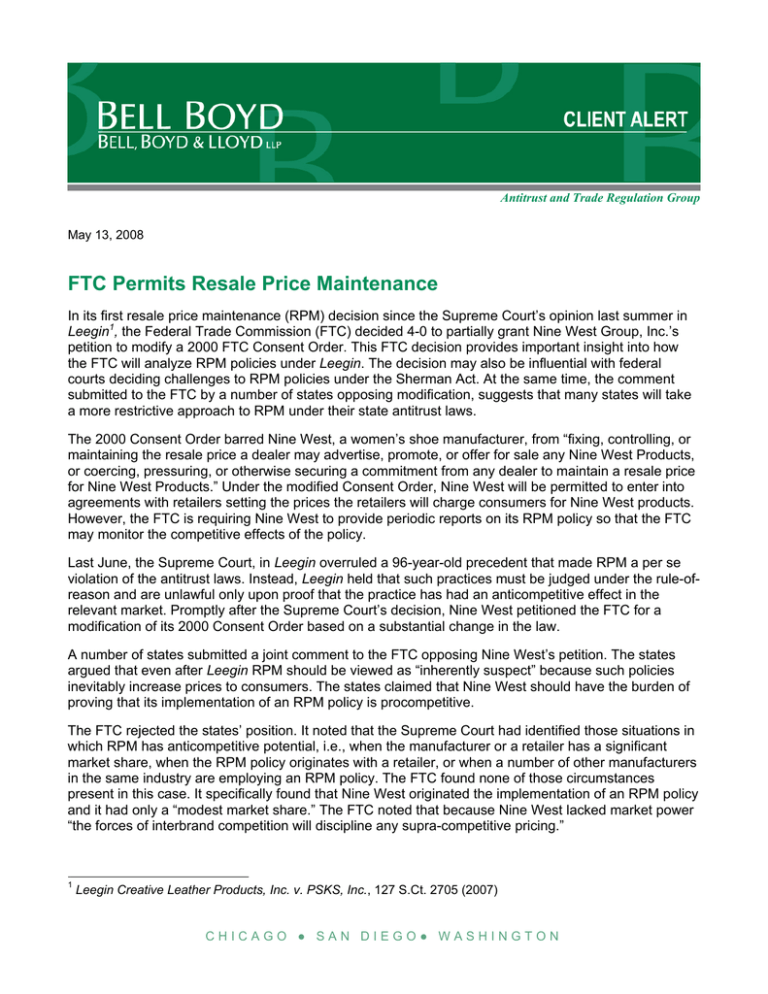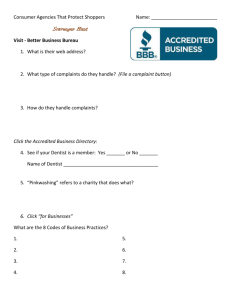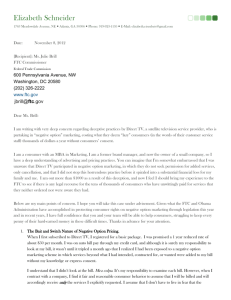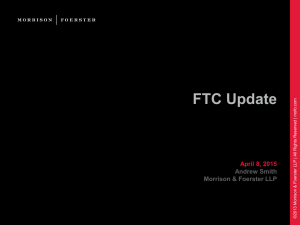
Antitrust and Trade Regulation Group
May 13, 2008
FTC Permits Resale Price Maintenance
In its first resale price maintenance (RPM) decision since the Supreme Court’s opinion last summer in
Leegin1, the Federal Trade Commission (FTC) decided 4-0 to partially grant Nine West Group, Inc.’s
petition to modify a 2000 FTC Consent Order. This FTC decision provides important insight into how
the FTC will analyze RPM policies under Leegin. The decision may also be influential with federal
courts deciding challenges to RPM policies under the Sherman Act. At the same time, the comment
submitted to the FTC by a number of states opposing modification, suggests that many states will take
a more restrictive approach to RPM under their state antitrust laws.
The 2000 Consent Order barred Nine West, a women’s shoe manufacturer, from “fixing, controlling, or
maintaining the resale price a dealer may advertise, promote, or offer for sale any Nine West Products,
or coercing, pressuring, or otherwise securing a commitment from any dealer to maintain a resale price
for Nine West Products.” Under the modified Consent Order, Nine West will be permitted to enter into
agreements with retailers setting the prices the retailers will charge consumers for Nine West products.
However, the FTC is requiring Nine West to provide periodic reports on its RPM policy so that the FTC
may monitor the competitive effects of the policy.
Last June, the Supreme Court, in Leegin overruled a 96-year-old precedent that made RPM a per se
violation of the antitrust laws. Instead, Leegin held that such practices must be judged under the rule-ofreason and are unlawful only upon proof that the practice has had an anticompetitive effect in the
relevant market. Promptly after the Supreme Court’s decision, Nine West petitioned the FTC for a
modification of its 2000 Consent Order based on a substantial change in the law.
A number of states submitted a joint comment to the FTC opposing Nine West’s petition. The states
argued that even after Leegin RPM should be viewed as “inherently suspect” because such policies
inevitably increase prices to consumers. The states claimed that Nine West should have the burden of
proving that its implementation of an RPM policy is procompetitive.
The FTC rejected the states’ position. It noted that the Supreme Court had identified those situations in
which RPM has anticompetitive potential, i.e., when the manufacturer or a retailer has a significant
market share, when the RPM policy originates with a retailer, or when a number of other manufacturers
in the same industry are employing an RPM policy. The FTC found none of those circumstances
present in this case. It specifically found that Nine West originated the implementation of an RPM policy
and it had only a “modest market share.” The FTC noted that because Nine West lacked market power
“the forces of interbrand competition will discipline any supra-competitive pricing.”
1
Leegin Creative Leather Products, Inc. v. PSKS, Inc., 127 S.Ct. 2705 (2007)
CHICAGO ● SAN DIEGO● WASHINGTON
The FTC stated that even if Nine West had market power, or its policy originated with its retailers, Nine
West could still justify modification of the Consent Order by showing that its RPM policy is
procompetitive. According to the FTC, a firm can justify its RPM policy “by presenting evidence that
while the practice might increase resale prices for its products over what they would otherwise be, it
enhances output. That might suggest that consumers place a higher value on non-price factors (such
as service) than they do on price, so that the practice may be viewed as efficiency-enhancing.”
However, the FTC held that Nine West had not presented sufficient evidence that its RPM policy would
be procompetitive. Therefore, the FTC is requiring Nine West to submit reports on the first, third and
fifth anniversaries of the Order modification so that FTC can “monitor the effects of Nine West’s use of
resale price maintenance.”
For further information, please contact Scott Mendel (312-807-4252, smendel@bellboyd.com).
This publication has been prepared by the Antitrust and Trade Regulation Group of Bell, Boyd & Lloyd LLP for clients and
friends of the firm and is for information only. It is not a substitute for legal advice or individual analysis of a particular legal
matter. Readers should not act without seeking professional legal counsel. Transmission and receipt of this publication does
not create an attorney-client relationship.
© 2008 Bell, Boyd & Lloyd LLP All Rights Reserved
www.bellboyd.com
70 West Madison Street
Chicago, Illinois 60602
t. 312-372-1121
f. 312-827-8000
3580 Carmel Mountain Road
San Diego, California 92130
t. 858-509-7400
f. 858-509-7466
1615 L Street, N.W.
Washington, D.C. 20036
t. 202-466-6300
f. 202-463-0678
2




